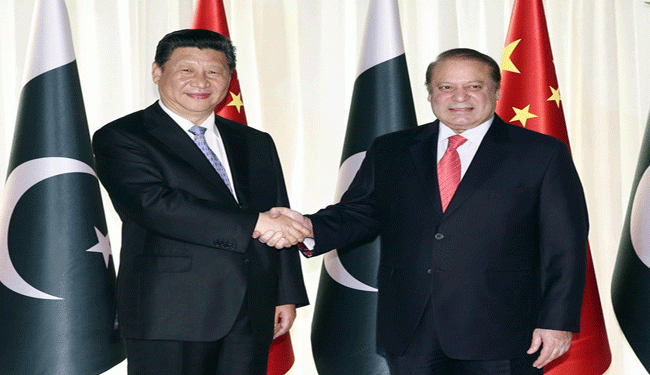KARACHI: Several Pakistani banks are looking to step out of their comfort zone, planning to expand overseas and exploring new markets, including neighboring China, officials said on Tuesday.
Sources said United Bank (UBL), Habib Bank (HBL) and National Bank of Pakistan (NBP), which together hold more than 40 percent market share, are attempting to capitalise on the growing trade and financing opportunities emanating from the ongoing China-Pakistan Economic Corridor (CPEC)-related activities.
An official at UBL told The News that the bank has planned to set up a full-fledged branch in China and will offer a complete product suit in line with the guidelines of the China Banking Regulatory Commission.
“Currently, we are driving relationship-based business coverage strategy from UBL Pakistan in China for the UBL network and are engaged with multiple counter parties to establish strategic relationships and offer banking services in respective geographies, mainly Pakistan,” the official said. “The bank has entered into strategic cooperation with Chinese policy banks to support project finance requirements arising from CPEC opportunities.”
The UBL, the second-largest private sector bank, entered the Chinese market in 2007 through setting up representative office in Beijing, which is acting as liaison office for the bank and providing valuable insight on Chinese business dynamics and the government of China’s future plans and priorities.
HBL is also set to open its first branch in the Chinese city of Urumqi, the capital of Muslims-dominated Xinjiang region, in the next few months.
“HBL has already received permission to open a branch in China from the SBP and regulators in China,” Abid Qamar, the central bank’s chief spokesman said. “Currently, the HBL is in the process with the SBP to complete other formalities.”
HBL and the China Development Bank (CDB) signed a $500 million accord under which medium- and long-term foreign currency financing will be provided to a local financial institution. The CDB will provide $300 million to HBL for long-term financing of energy projects in the country and $200m for offshore working capital financing needs.
A spokesman at the NBP said the bank is also in the process of meeting the regulatory requirements of China and Pakistan to open a full-fledged branch in Beijing. The bank already has a representative office in China.
“This branch will extend all banking facilities permissible under local regulations to Chinese as well as Pakistani clients, including all foreign trade,” the NBP’s spokesman said.
“It will work as a financial bridge to fill the financing gap for projects under CPEC through arrangement of syndication financing. It will also support public sectors of both the countries for their ventures in terms of banking.”
The bank has already established ‘China Desk’ in Islamabad to facilitate CPEC-related projects.
Financial analyst Mubashar Bashir said there are a lot of requirements for trade and project financing.
“The CPEC is likely to open big opportunities for bank branches in China, like trade financing, along with fee-based services such as letters of credit,” Bashir said. “Though it’s very difficult to assess the size of goods to be traded across the CPEC route, approximately 1.25 million containers worth around $30-40 billion [goods] are expected to be transported a year at the route.”


















